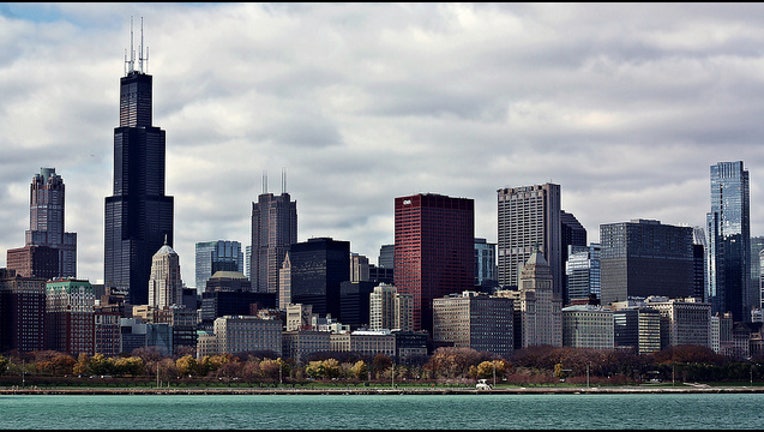Anti-violence programs shut down as Chicago shootings climb

Matt B / Flickr
CHICAGO (AP) — Captured in a documentary that brought national attention to Chicago's violence, CeaseFire deployed former gang members and felons to intervene in feuds that too often ended in fatal gunfire on the city's streets.
Now that operation has become another casualty in the financial meltdown enveloping Illinois, even as the city still struggles to stop shootings.
Republican Gov. Bruce Rauner froze money for CeaseFire, featured in the 2011 documentary "The Interrupters," as Illinois began running out of money because Democrats passed a budget that spent billions more than the state took in. The program was cut off before receiving all of the $4.7 million it was budgeted last fiscal year, and it has gotten no state funding this year as the fight between Rauner and Democrats who lead the Legislature drags on and several programs in Chicago and elsewhere in Illinois shut down.
Meanwhile, Chicago has seen a roughly 20 percent increase in shootings and homicides so far this year compared with the same period in 2014. That included a July 4 weekend that left 48 people shot, including a 7-year-old boy who police say was killed by a shot intended for his father, described as a "ranking gang member" by officers.
None of those holiday weekend shootings occurred in two police districts covered by a Ceasefire-affiliated program that managed to fund itself for the month of July. The same area saw nearly 50 shootings in August.
CeaseFire supporters say Chicago and roughly a half dozen other current or former CeaseFire communities need all the resources they can get.
"Our kids in our communities are still dying," said Autry Phillips, executive director of Target Area Development, a nonprofit agency on Chicago's South Side that had to end its CeaseFire program. "We're going to do what we can do, but we need funding. That's the bottom line."
Even before the freeze, Rauner proposed cutting CeaseFire funding by nearly $3 million this year. His spokeswoman blamed Democrats who have refused pro-business changes sought by the former venture capitalist and first time office holder, such as weakening labor unions.
"The governor has asked for structural reforms to free up resources to balance the budget, help the most vulnerable and create jobs," spokeswoman Lyndsey Walters said this week. "Unfortunately, the majority party continues to block the governor's reforms and refuses to pass a balanced budget."
"The Interrupters" aired as part of the "Frontline" documentary series on PBS and at film festivals across the U.S. The film featured three former gang members working to "interrupt" Chicago violence, though programs using the model have been implemented in cities nationwide and overseas.
CeaseFire uses an approach founded by an epidemiologist who argued violence should be attacked like a disease — by stopping it at its source. It's overseen by Cure Violence, an organization based at the University of Illinois at Chicago's School of Public Health. Researchers say CeaseFire has reduced gang involvement, shootings and retaliatory killings.
But it hasn't been universally embraced. In 2013, Chicago Mayor Rahm Emanuel opted not to renew a one-year, $1 million contract for CeaseFire programs in two neighborhoods. The decision followed criticism by Chicago police that CeaseFire staff weren't sharing information or working closely enough with them. Some program members also were getting into trouble of their own.
Today, programs are operating in six Chicago neighborhoods. More than double that number have shut down in the city and in other Illinois communities, including East St. Louis and Rockford, because of funding cuts, said Kathy Buettner, Cure Violence communications director.
Target Area's grant was $220,000. Combined with another eliminated grant that helped ex-offenders leaving prison, the state dollars made up 21 percent of the agency's annual budget, Phillips said.
In July, Target Area used an anonymous donation to train several hundred people on how to prevent conflicts from escalating into violence. The neighborhood into which they were sent during the July 4 weekend saw none of the dozens of shootings and killings that plagued the city over those days, Phillips said.
The following month, when funding was gone and programs had ended, there were 46 shootings in the same area.
Inside Target Area's office, a large laminated map of the neighborhood hangs on a wall, dotted with stickers of various shapes and sizes that mark the locations where violence has occurred.
The biggest, red dots indicate the sites of multiple shootings. Phillips sees each one as a failure — a person his organization couldn't help.
"I hate the dots," he said.
___
This story has been corrected to reflect that the name of the operation is CeaseFire, instead of Operation CeaseFire.

